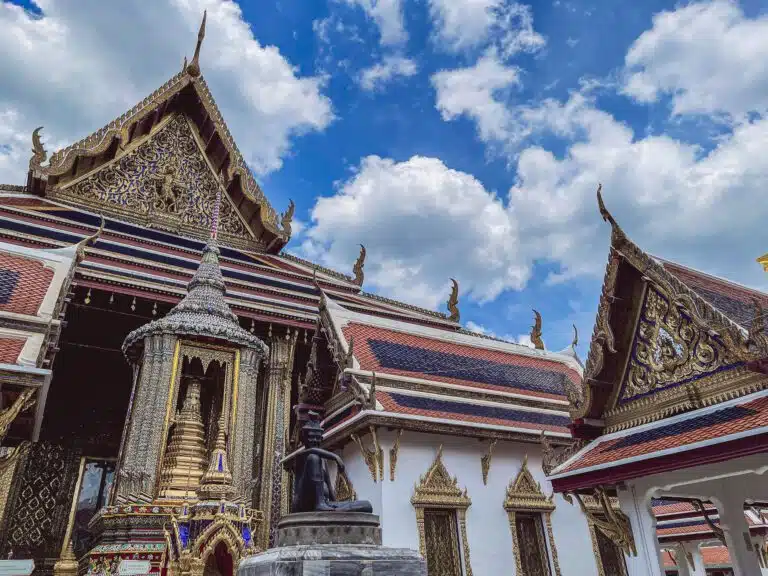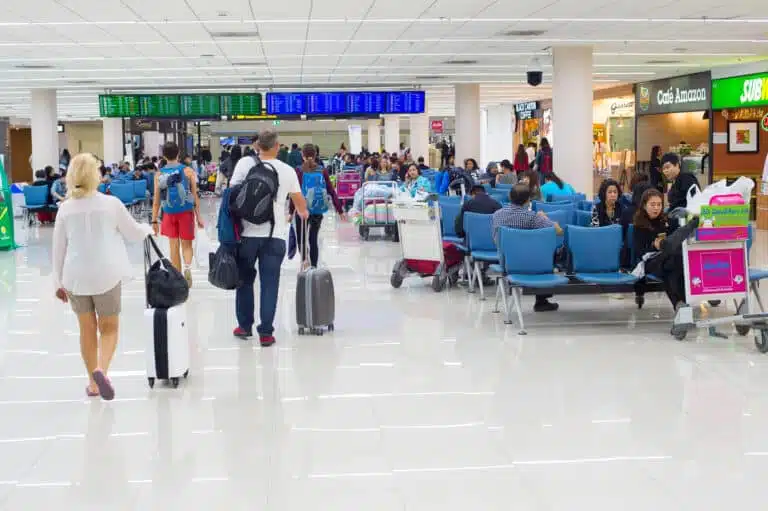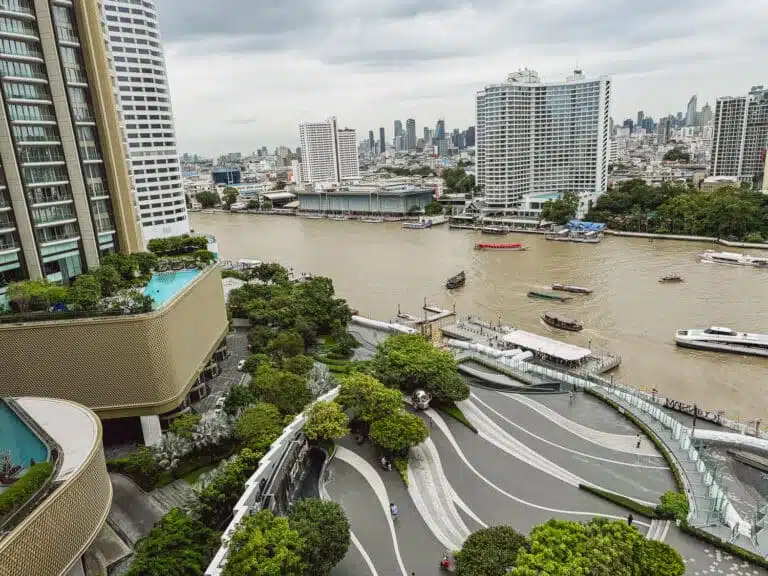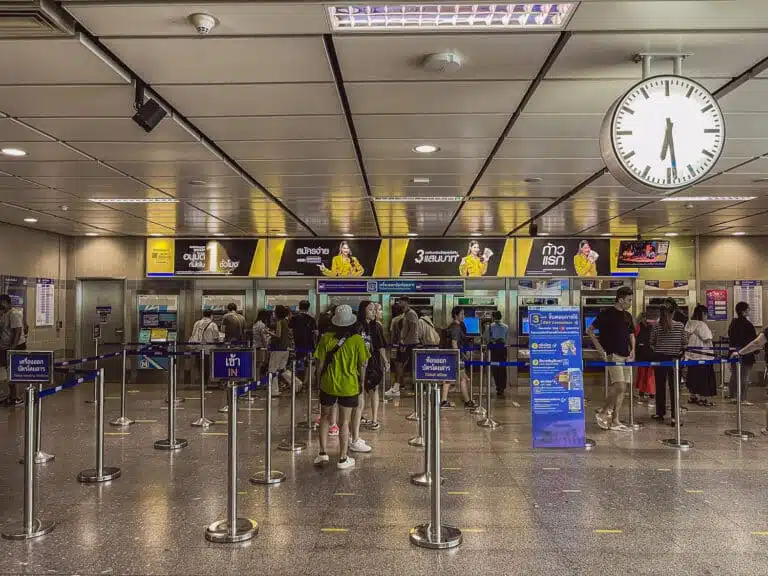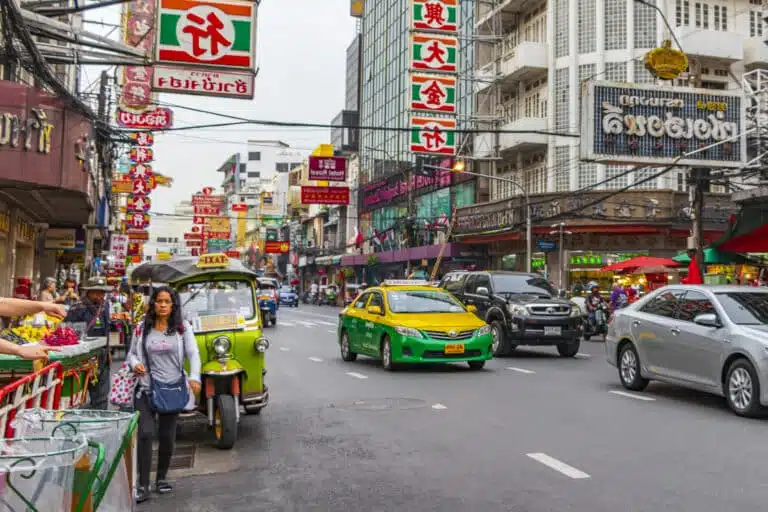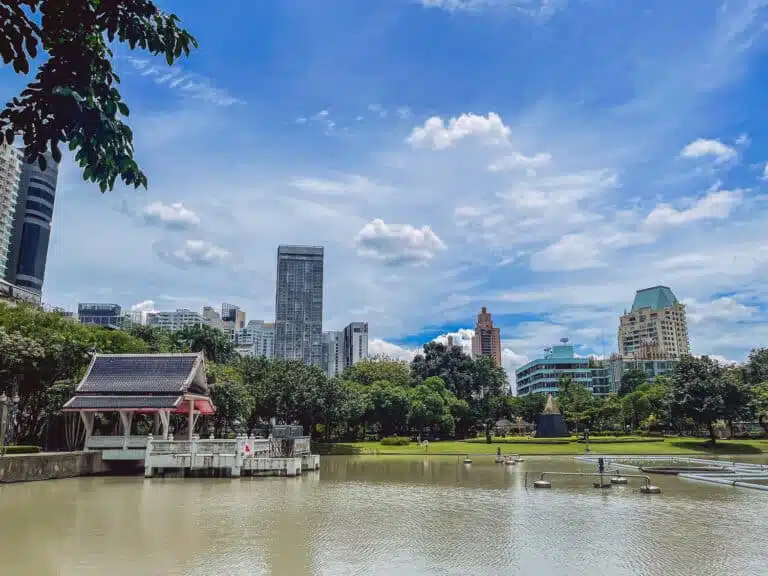Scams in Bangkok: We reveal the most common tricks scammers use to take money out of your pocket.
Bangkok is a brilliant city that will quickly cast a spell over you with its unique energy, incredible temples, and huge culinary offerings.
But as in any metropolis that attracts millions of tourists every year, travelers should be aware of a few stumbling blocks.
Therefore, this blog post delves into the world of scams in Bangkok. Here, you can find out which tricks and scams are common in the capital and how you can protect yourself against them.
These scams are prevalent in Bangkok.
From tuk-tuk rides that cost more than a gourmet dinner to fake police officers and closed temples – these scams in Bangkok are prevalent for taking money out of tourists’ pockets.
1. The Tuk-Tuk Scam
A tuk-tuk driver offers you a highly cheap tour of the city.
During the tour, however, it stops at various stores (often jewelry or clothing stores) where they try to sell you overpriced goods. The driver receives a commission for each stop.
Tip: The best option is to get out and take a licensed cab, rideshare, or public transport.
Remain polite but firm and do not get involved in discussions.

2. The Grand-Palace-is-closed-Scam
A friendly local approaches you near the Grand Palace (or another well-known sight) and informs you that it is closed.
Instead, he offers to take you to other places of interest, and you usually end up in one of the stores mentioned above.
Another variant, by the way, is the “you’re not allowed in the temple with this outfit” story. Don’t let this put you off, if necessary you can borrow a cloth to cover yourself on site.
Tip: If you wonder why so many people are walking towards the Grand Palace, you will often be told that the attraction is open today “only for Buddhists.”
That’s nonsense, of course – ignore the offer and get information directly at the entrance.
Tip: To learn more about the Grand Palace, book a guided tour of Wat Phra Kaeo.
3. False monks
Also not uncommon among scams in Bangkok: people pretending to be monks asking for donations for various projects.
Real monks don’t usually beg tourists for money.
Tip: A polite “Sorry, I have no cash on me” should suffice.
4. Overpriced cabs
Drivers who refuse to use the taximeter and demand a much higher fixed price are commonplace.
Tip: Always insist that the meter is switched on. In rush hour traffic, however, you may not find a driver who will take you with a taximeter.
In this case, you should agree on a fixed price and not enter further negotiations during the journey. You should get out of the car if the driver’s behavior becomes aggressive.

5. Gem scam
A local tells you about a unique opportunity to buy gemstones for a fraction of their value and then sell them back home for a huge profit.
However, these gemstones are – who would have thought it – often worthless.
Tip: You should only buy precious stones and precious metals such as gold in Bangkok in licensed stores.
The many gold stores in Yaowarat(Chinatown), for example, are a good place to go. The prices of the items here are by weight and are based on the international gold price on the respective day.
Tip: On this guided tour through Chinatown, you will see Wat Traimit and the most exciting corners of the district.
6. Pretending to be friends
A local approaches you to supposedly improve his English – this scam is particularly popular among scams in Bangkok.
After a while, he suggests visiting a restaurant or bar, where you will be confronted with an exorbitantly high bill.
Tip: Of course, you don’t have to be rude, and it’s always fun to converse with the locals.
However, before you visit a restaurant or bar with a new acquaintance, you should take a closer look at the location on Google Maps and, if in doubt, suggest another location.
If the scammer shows no interest and says goodbye immediately, you have your answer.
7. Bar scam
In some bars, especially on the notorious Patpong Street, tourists are lured in by low prices.
In the end, however, you are presented with a disproportionately high bill, often for drinks that you didn’t even order.
Tip: Only order in bars with clearly marked prices on the menu. Never have a pitcher, beer, or similar placed on the table without being asked.
Last but not least, don’t buy strangers (or men) a drink in a bar if you don’t know how much it will cost.
Tip: This Bangkok Food Tour is perfect if you want to learn more about the local cuisine and Bangkok’s history and culture.
8. Rental scams
When renting scooters or jet skis, damage is sometimes invented that you are supposed to have caused to ask you to pay for repairs.
Therefore, always take photos or videos with a time stamp before use. Preferably, it should be on-site and in front of the owners.
Tip: Avoid leaving your passport as a deposit and instead try to agree on a cash deposit with the owner.
I’d rather have a few thousand baht less in my account than be in a foreign country without a passport.
9. Sim card scam
Sellers offer tourists expensive SIM cards with “unlimited data,” which quickly turn out to be limited or overpriced.
Tip: You can easily buy SIM cards with unlimited data volume in almost any convenience store (e.g., 7/11) or at the airport. All you need is your passport.
Alternatively, you can also use apps such as Flexiroam and Airalo.

10. The fake policeman
People who pretend to be police officers and try to punish or bribe you for an alleged offense are also common scams in Bangkok.
As a rule, real officers do not carry out civilian checks. Tourists are actually only stopped by the police when they are on a scooter.
Tip: If you can’t escape the situation, ask the “officers” to show you their ID cards.
Take out your cell phone and tell them you’re checking with the Bangkok Tourist Police to make sure everything is in order.
Alternatively, you can ask the “policemen” to accompany you to the nearest police station. As a rule, the scammers are then quickly out of the picture.
Tip: This private temple tour takes you to Wat Pho, Wat Traimit, and Wat Benchamabophit.
FAQs about the most common scams in Bangkok
Finally, we will answer some frequently asked questions about the most common scams in Bangkok.
What is the most common scam that tourists encounter in Bangkok?
Probably the best-known scam is the “tuk-tuk scam,” where drivers offer extremely cheap city tours that inevitably end up at overpriced stores from which the driver receives a commission.
How can I tell if a temple is really closed?
If someone outside a temple tells you that it is closed and offers a tour instead, it is best to check the status yourself or search the internet for the official opening times.
Can I buy jewelry or gemstones in Bangkok as an investment?
Be very careful with offers that seem too good to be true. The gemstone scam is widespread, and the “valuable” stones are often worth little. The situation is different with licensed gold stores, such as in Chinatown. You can actually get good deals here.
Can I trust cabs in Bangkok?
Yes, but insist the driver turn on the meter to avoid overpriced trips. Avoid cabs that refuse to use the taximeter.
Is it safe to drink at a bar in Bangkok?
Basically, yes, but be careful in areas like Patpong where the “bar scam” can occur with unexpectedly high bills. Order your drinks yourself and keep track of your orders.
What do I do if I think I am the victim of a scam?
Stay calm and, if necessary, seek help from the tourist police. They have experience dealing with such situations and scams in Bangkok in general.
How do I avoid getting caught up in a scam in Bangkok?
Inform yourself before your trip, stay alert, and trust your gut feeling. If something sounds too good to be true, it probably is.

